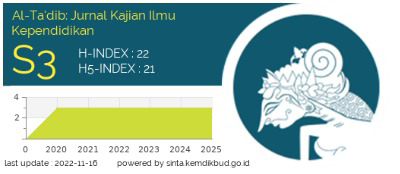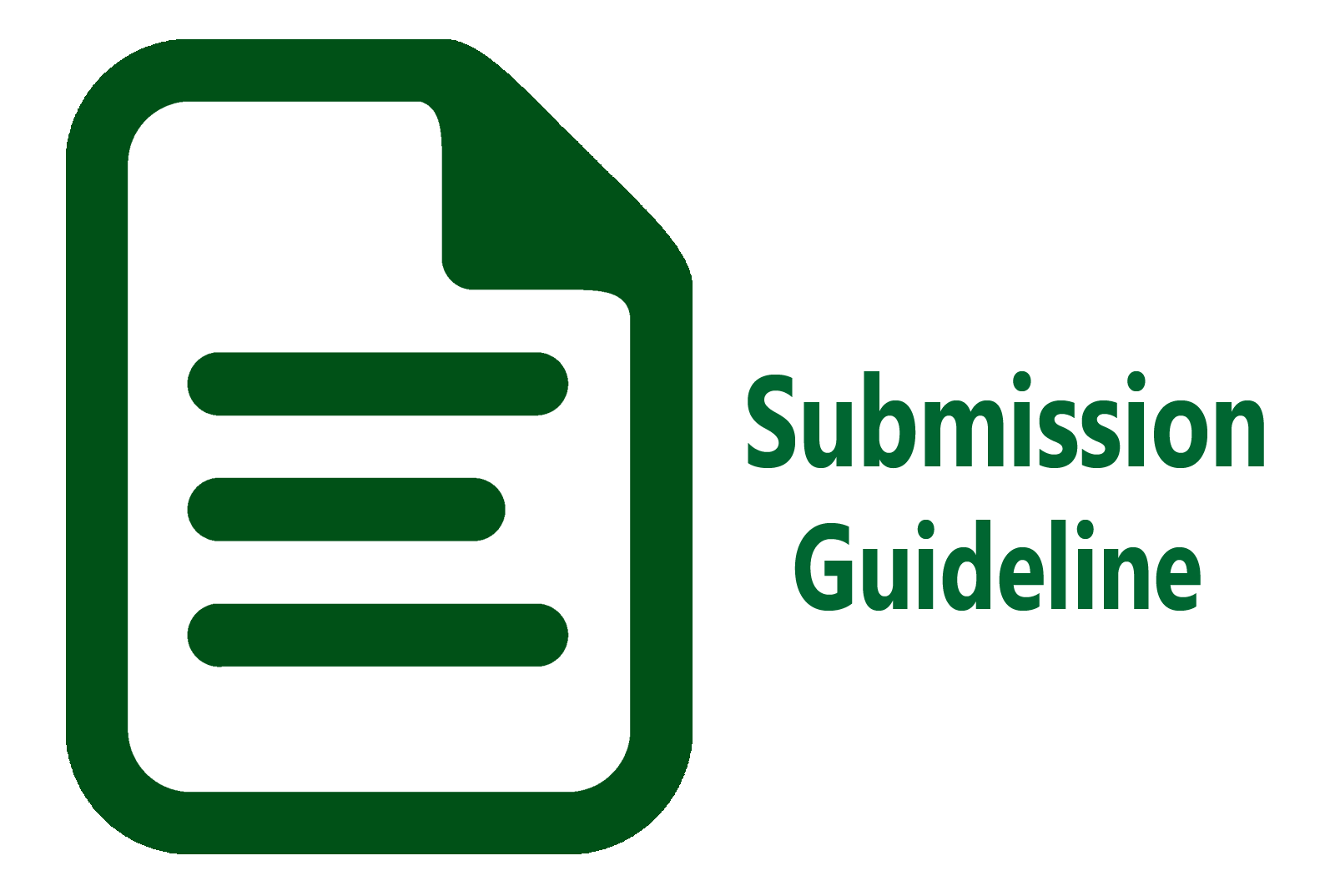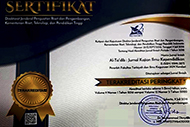Students’ Experience on Task Repetition in Collaborative Online Writing of Video-Based Task
Abstract
This qualitative study aimed to explore students’ experience on task repetition in collaborative online writing of video-based task. The data were collected through semi-structured interviews of fifteen English students in the third semester at an Islamic higher institution in Southeast Sulawesi who have carried out task repetition in collaborative online writing of video-based task. The researcher conducted a semi-structured interview by telephone and the interview process was recorded to make it easier for the researcher to transcribe the results of the interviews. Using thematic analysis, the finding revealed that most of the participants tend to have positive experience when carrying out task repetition in collaborative online writing of video-based task. Moreover, numerous challenges faced by students in doing task repetition were also presented in the finding of this study.
Full Text:
PDFReferences
Ahmadian, M. J. (2011). The effect of ‘massed’ task repetitions on complexity, accuracy, and fluency: Does it transfer to a new task? The Language Learning Journal, 39(3), 269¬-280.
Alvarez, I., Espasa, A., & Guasch, T. (2012). The value of feedback in improving collaborative writing assignments in an online learning environment. Studies in Higher Education, 37(4), 387-400.
Amiryousefi, M. (2016). The differential effects of two types of task repetition on the complexity, accuracy, and fluency in computer-mediated L2 written production: A focus on computer anxiety. Computer Assisted Language Learning, 29(5), 1052-1068.
Baba, K., & Nitta, R. (2014). Phrase transitions in development of writing fluency from a complex dynamic system perspective. Language Learning, 64(1), 1-34.
Baleghizadeh, S., & Derakhshesh, A. (2012). The effect of task repetition and noticing on EFL learners’ oral output. International Journal of Instruction, 5(1), 141-152.
Bernard, H. R. (2002). Research methods in anthropology: Qualitative and quantitative approaches (3rd) ed). Walnut Creek, CA: Alta Mitra Press.
Braun, V., & Clarke, V. (2006). Using thematic analysis in psychology. Qualitative Research in Psychology, 3(2), 77-101.
Bygate, M. (1996). Effects of task repetition: Appraising the development of second language learners. In J. Willis & D. Willis (Eds.), Challenge and change in language teaching, 136 –147. Oxford: Heinemann.
Bygate, M. (1999). Task as context for the framing, reframing and unframing of language. System, 27(1), 33-48.
Bygate, M. (2001). Effects of task repetition on the structure and control of language. In M. Bygate, P. Skehan and M. Swain, Researching pedagogic tasks: Second language learning, teaching and testing (pp. 23–48). Harlow: Longman.
Bygate, M., & Samuda, V. (2005). Integrative planning through the use of task-repetition. In R. Ellis (Ed.), Planning and task performance in a second language (pp. 37-74). Amsterdam: John Benjamins Publishing Company.
Chen, W., & Yu, S. (2019). Implementing collaborative writing in teacher-centered classroom contexts: Students believe and perceptions. Language Awareness, 28(4), 247-267.
Chiong, R., & Javanovic, J. (2012). Collaborative learning in online study group: An evolutionary game theory perspective. Journal of Information Technology Education Research, 11(1), 81-101.
Chu, S. K.-W., & Kennedy, D. M. (2011). Using online collaborative tools for groups to co-construct knowledge. Online Information Review, 35(4), 581-597.
Clandinin, D. J., & Connelly, F. M. (2000). Narrative inquiry: Experience and story in qualitative research. San Francisco, CA: Jossey-Bass.
Coffin, P. (2020). Implementing collaborative writing in EFL classrooms: Teachers and students’ perspectives. LEARN Journal: Language Education and Acquisition Research Network, 13(1), 178-194.
Creswell, J. W (2010) Research design: pendekatan, kualitatif, kuantitatif, dan mixed. Yogjakarta: PT Pustaka Pelajar.
Creswell, J. W., & Creswell, J. D. (2017). Research design: Qualitative, quantitative and mixed methods approaches. California: Sage Publication.
Ellis, R. (2015). Understanding second language acquisition (2nd ed.). Oxford: Oxford University Press.
Farrah, M. (2011). Attitudes towards collaborative writing among English major in Hebron university. Arab World English Journal, 2(4), 136-170.
Giroud, A. (1999). Studying argumentative text processing through collaborative writing. In J. Adriessen and P. Coirier (Eds.), Foundations of argumentative text processing (pp. 149-178). Amsterdam: Amsterdam University Press.
Hadjerrouit, S. (2011). A collaborative writing approach to Wikis: Design, implementation, and evaluation. Issues in Informing Science and Information Technology, 8(2), 431-449.
Harrell, M. C., & Bradley, M. A. (2009). Data collection methods: Semi-structured interviews and focus groups. Santa Monica, CA: RAND Corporation.
Hassanzadeh-Taleshi, M., Yaqubi, B., & Bozorgian, H. (2021). The effects of combining task repetition with immediate post-task transcribing on L2 learners’ oral narratives. The Language Learning Journal, 1-12. DOI: 10.1080/09571736.2021.1901967
Indrarathne, B. (2013). Effects of task repetition on written language production in task based language teaching. In Lancaster University Postgraduate Conference in Linguistics & Language Teaching, 4(2), 42-46.
Janssen, J., Erkens, G., Kirschner, P. A., & Kanselaar, G. (2012). Task-related and social regulation during online collaborative learning. Metacognition and Learning, 7(1), 25–43.
Jung, S. (2013). The effect of task repetition and corrective feedback in L2 writing: A pilot study. MSU Working Papers in SLS, 4(2), 24-38.
Khosiyono, B. H. C. (2021). The effect of task repetition on complexity, accuracy, and fluency of Indonesian maritime vocational school students’ speaking performance. Journal of English Language Education, 4(1), 1-21.
Kim, Y., & Tracy-Ventura, N. (2013). The role of task repetition in L2 performance development: What needs to be repeated during task-based interaction? System, 41(3), 829-840.
Kvale, S. (2008). Doing interviews. London: Sage.
Larsen-Freeman, D. (2006). The emergence of complexity, fluency, and accuracy in the oral and written production of five Chinese learners of English. Applied Linguistics, 27(4), 590–619.
Lee, S. H., Bernstein, M., & Georgieva, Z. (2019). Online collaborative writing revision intervention outcomes for struggling and skilled writers: An initial finding. Preventing School Failure: Alternative Education for Children and Youth, 63(4), 297-307. DOI: 10.1080/1045988X.2018.1504741
Li, M. (2018). Computer-mediated collaborative writing in L2 context: Analysis of empirical research. Computer Assisted Language Learning, 4(1), 1-23. DOI:10.1080/09588221.2018.1465981
Lynch, T., & Maclean, J. (2001). A case of exercising: Effects of immediate task repetition on learners’ performance. In M. Bygate, P. Skehan, and M. Swain (Eds.), Researching pedagogic tasks, second language learning, teaching and testing. Harlow: Longman.
Maulidah, U. N., & Aziz, I. N. (2020). The effectiveness of online collaborative learning on student writing skill. Journal of Education, 5(2), 141-149.
Nitta, R., & Baba, K. (2014). Task repetition and L2 writing development. Amsterdam: John Benjamins Publishing Company.
Nycopp, M., Marttunen, M., & Erkens, G. (2018). Coordinating collaborative writing in an online environment. Journal of Computing in Higher Education, 31(3), 536-556.
Parker, K. R., & Chao, J. T. (2007). Wiki as a teaching tool. Interdisciplinary Journal of Knowledge and Learning Objects, 3(1), 57-72.
Saeedi, M., & Kazerooni, S. R. (2013). The influence of task repetition and task structure on EFL learners’ oral narrative retellings. Innovation in Language Learning and Teaching, 8(2), 1-16.
Storch, N. (2012). Collaborative writing as a site for L2 learning in face-to-face and online modes. Teaching Across Writing Context and Task, 5(2), 113-129.
Storch, N. (2013). Collaborative writing in L2 classrooms. Bristol, UK: Multilingual Matters.
Van de Guchte, M., Baraaksma, M., Rijlaarsdam, G., & Bimmel, P. (2016). Focus on form through task repetition in TBLT. Language Teaching Research, 20(3), 300-320.
Vorobel, O., & Kim, D. (2017). Adolescent ELLs’ collaborative writing practices in face-to-face and online contexts: From perceptions to action. System, 65(4), 78–89. DOI:10.1016/j.system.2017.01.008
Widodo, H. P. (2014). Methodological considerations in interview data transcription. International Journal of Innovation in English L anguage Teaching and Research, 3(1), 101-109.
Zhu, C. (2012). Student satisfaction, performance, and knowledge construction in online collaborative learning. Educational Technology & Society, 15(1), 127-136.
DOI: http://dx.doi.org/10.31332/atdbwv16i1.4495
Refbacks
- There are currently no refbacks.
Copyright (c) 2023 Siti Alawiyah

This work is licensed under a Creative Commons Attribution-NonCommercial-ShareAlike 4.0 International License.
| Indexing: |










